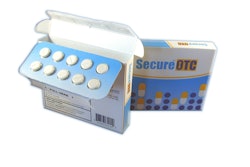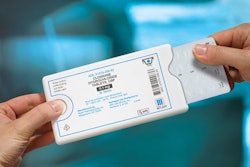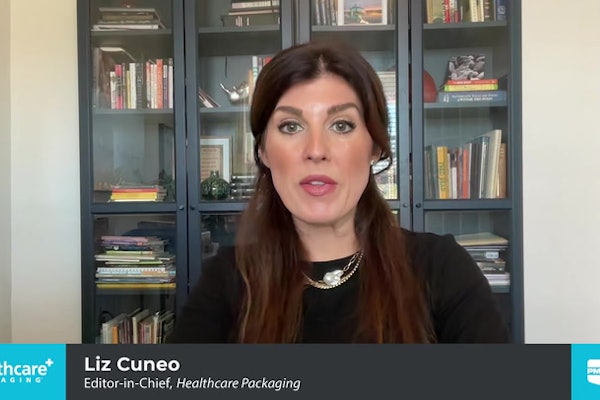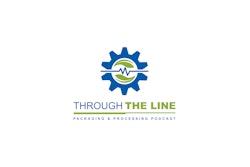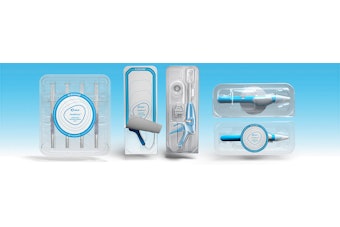In response, Bruce T. Roberts, RPh, National Community Pharmacists Association (NCPA) executive vice president and CEO, issued the following statement:
“When WAL-MART launched a pilot program for mail order prescriptions in Michigan last May, we highlighted the unintended consequences of steering patients away from using community pharmacies. While WAL-MART contends they are saving patients money and offering more convenience, they fail to mention the downsides that come with mail order.
“Deliveries can be delayed, sent to the wrong address, or damaged. In a recent survey of patients, NCPA found that 48 percent received their prescriptions late and were put in a position to do without their medication. In addition, when bulk supplies are ordered, patients can wind up with an excessive amount of medications if any changes occur to what their doctor prescribes. All of those aforementioned scenarios occur under mail order•€•just ask patients who use the other large mail order companies like CVS Caremark, Express Scripts Inc., and Medco Health Solutions.
“In fact, community pharmacies often have to help patients who are left waiting by their mailbox. Nearly 85 percent of patients report having to go to their community pharmacy to receive an emergency supply of their medication when delivery mistakes occur. We understand the financial strains occurring under our current health care system, and community pharmacists are more than capable of helping patients reduce cost.
“Most importantly, when patients use mail order they lose the face-to-face relationship that occurs inside their community pharmacies with clinically trained health care professionals who are dedicated to promoting safety and improving health outcomes. For patients with transportation issues, such as those who are homebound as a result of their health, 87% of community pharmacies offer home delivery, often free of charge. This allows the pharmacist-patient relationship to continue.
“Prescription medications offer tremendous therapeutic benefits when used correctly, but pose significant risks to patients when used improperly. It's been estimated that $290 billion is spent annually on hospital, physician and other treatments for inappropriate medication use. Clearly, more patients risk potential adverse drug events and the resulting treatment costs if they gravitate towards WAL-MART's mail order program.
“Our biggest concern is that since WAL-MART is such a driving and dominant force in the marketplace, that this program will be copied by other mass merchant retailers who feel compelled to try to follow suit. Prescription medications are life saving tools that improve the lives of patients, not general merchandise. Such a cavalier approach to health care is not going to strengthen America's health care system.”
“When WAL-MART launched a pilot program for mail order prescriptions in Michigan last May, we highlighted the unintended consequences of steering patients away from using community pharmacies. While WAL-MART contends they are saving patients money and offering more convenience, they fail to mention the downsides that come with mail order.
“Deliveries can be delayed, sent to the wrong address, or damaged. In a recent survey of patients, NCPA found that 48 percent received their prescriptions late and were put in a position to do without their medication. In addition, when bulk supplies are ordered, patients can wind up with an excessive amount of medications if any changes occur to what their doctor prescribes. All of those aforementioned scenarios occur under mail order•€•just ask patients who use the other large mail order companies like CVS Caremark, Express Scripts Inc., and Medco Health Solutions.
“In fact, community pharmacies often have to help patients who are left waiting by their mailbox. Nearly 85 percent of patients report having to go to their community pharmacy to receive an emergency supply of their medication when delivery mistakes occur. We understand the financial strains occurring under our current health care system, and community pharmacists are more than capable of helping patients reduce cost.
“Most importantly, when patients use mail order they lose the face-to-face relationship that occurs inside their community pharmacies with clinically trained health care professionals who are dedicated to promoting safety and improving health outcomes. For patients with transportation issues, such as those who are homebound as a result of their health, 87% of community pharmacies offer home delivery, often free of charge. This allows the pharmacist-patient relationship to continue.
“Prescription medications offer tremendous therapeutic benefits when used correctly, but pose significant risks to patients when used improperly. It's been estimated that $290 billion is spent annually on hospital, physician and other treatments for inappropriate medication use. Clearly, more patients risk potential adverse drug events and the resulting treatment costs if they gravitate towards WAL-MART's mail order program.
“Our biggest concern is that since WAL-MART is such a driving and dominant force in the marketplace, that this program will be copied by other mass merchant retailers who feel compelled to try to follow suit. Prescription medications are life saving tools that improve the lives of patients, not general merchandise. Such a cavalier approach to health care is not going to strengthen America's health care system.”
Companies in this press-release



